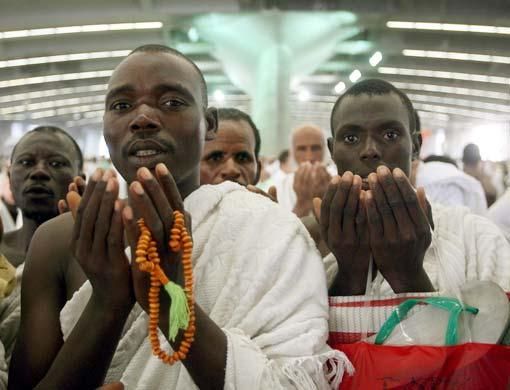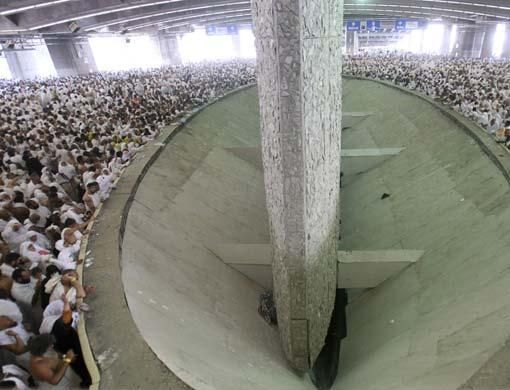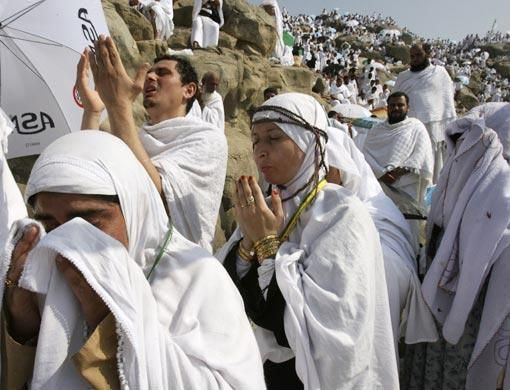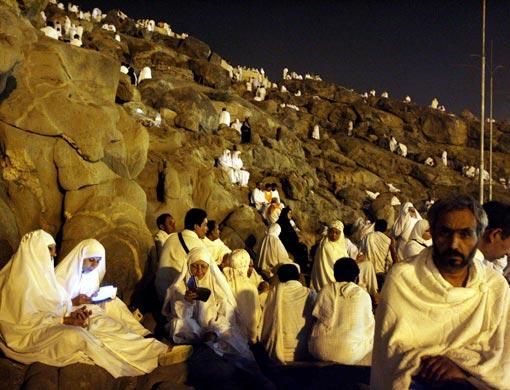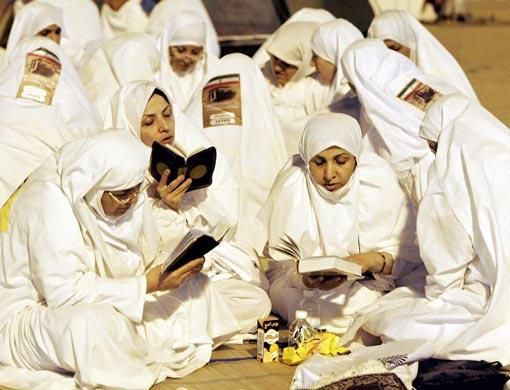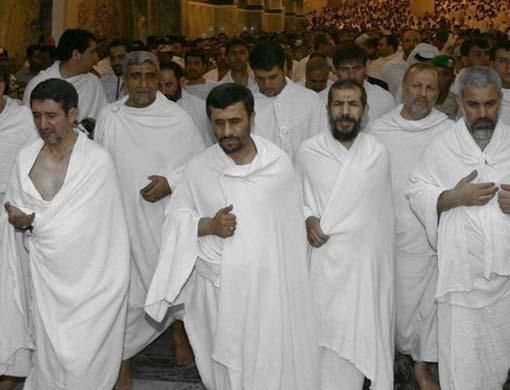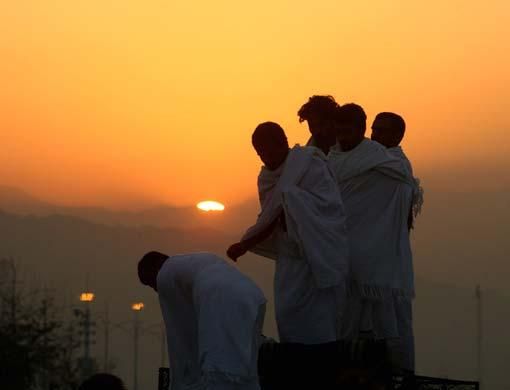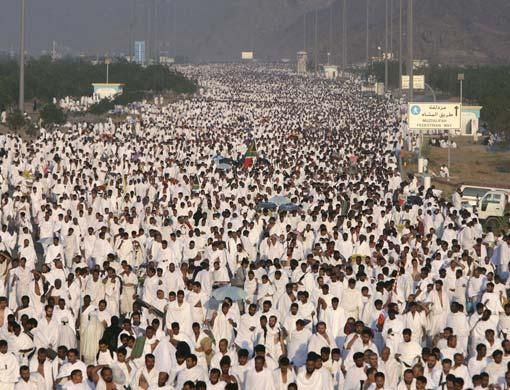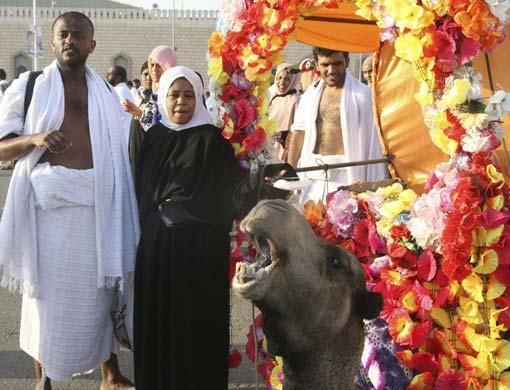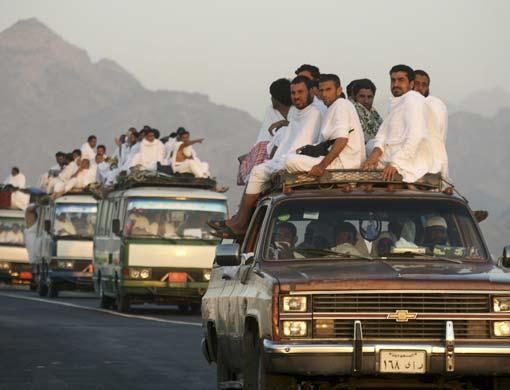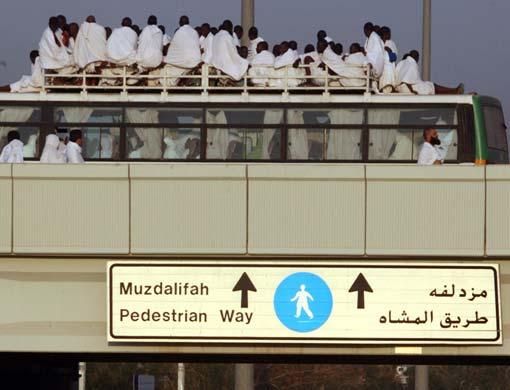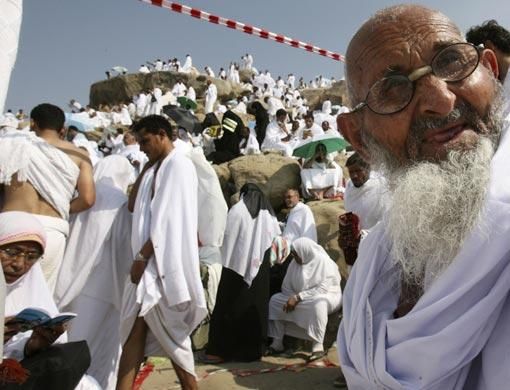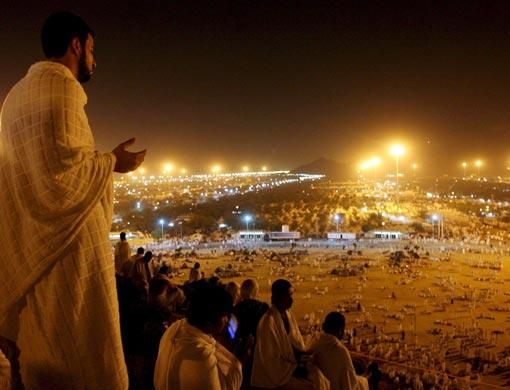Arafat: Millions of pilgrims spent the afternoon on the plain of Arafat east of Makkah on Tuesday at the peak of the annual Haj pilgrimage.
Many prayed for forgiveness and the welfare of Muslims across the world but for many others it was enough just to be there - part of a global community born in Arabia 1,400 years ago and united in belief in one transcendent God.
Saudi authorities say more than 1.6 million people have entered Saudi Arabia for the event, the largest religious gathering in the world and a huge logistical and security challenge for the Saudi authorities.
With pilgrims from within the country, both Saudis and foreign workers, the total would be well over 2 million. Some Saudi newspapers said 3 million people were expected.
The pilgrims, dressed in special white robes, jostled for space in the narrow confines of the area where they must spend the afternoon, preferably in reading and prayer to God.
But scholars say that being on the plain at the required time is enough to validate the pilgrim's Haj.
Some pilgrims slept in tents, picnicked wherever they could find the space to lay their mats or just chatted with friends.
Physical conditions were gruelling, with the crowds, the sun and the heat, the rapidly accumulating rubbish and the long queues for access to some facilities.
Water sprays raised on posts across the plain provided a thin mist and some relief from the midday heat.
But pilgrims said the clamour did not bother them. Some said they welcomed the crowding as a sign of Muslim solidarity.
"The conditions are fine. This event brings us together from all countries in the world," said Nagat Ahmad, an Egyptian woman pilgrim from the Nile Delta province of Dakahlia.
Asghari Saba Ansari, from Crawford Market near the Indian capital Delhi, said her family had found space on the tarmac, between a parked bus and a large four-wheel-drive vehicle.
"We have been here for three hours now and everybody is cooperating. No one has troubled us. We have been praying for forgiveness for any mistakes we have made, for a better life and the good of all Muslims," she said.
So far the Saudi authorities have reported none of the problems or disasters which have marred the Haj in previous years - such as fires, hotel collapses, police clashes with protesters and deadly stampedes caused by overcrowding.
Jamarat: Civil defence on alert
The Saudi Department of Civil Defence (DCD) has completed the arrangements for the reception of pilgrims at the Jamarat zone through a comprehensive plan. Pilgrims start today throwing the Jamarat (pebbles), a symbolic action of stoning Satan.
The commander of DCD forces Colonel Salem Bin Mohammad Al Mazhab described the set plan as "flexible." He added that trained cadres have been selected to implement the plan.
"These cadres have experience in the fields of rescue operations, medical evacuation and dealing with chemical and radiation emission," the official said.
- Mariam Al Hakeem, Correspondent


